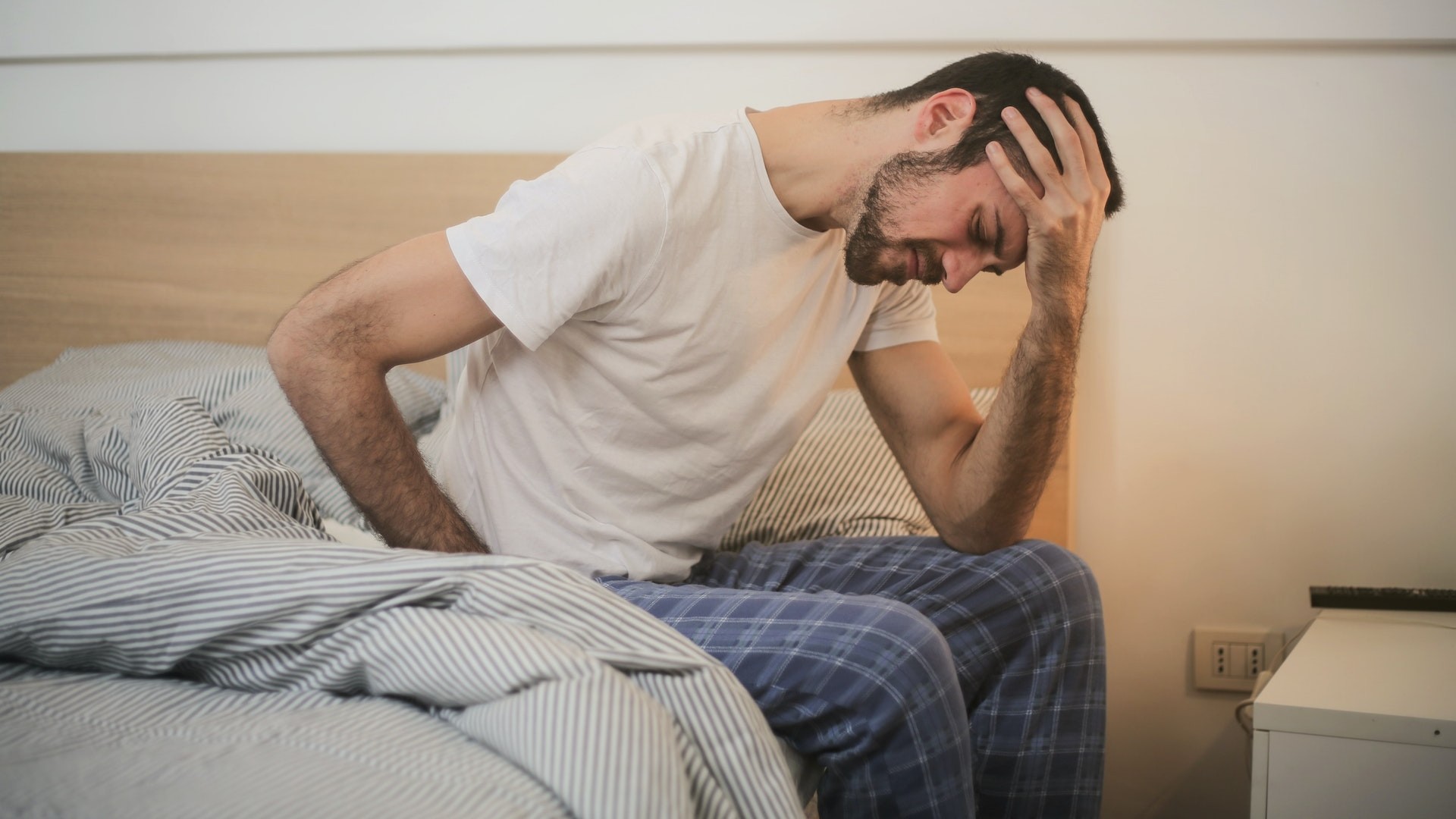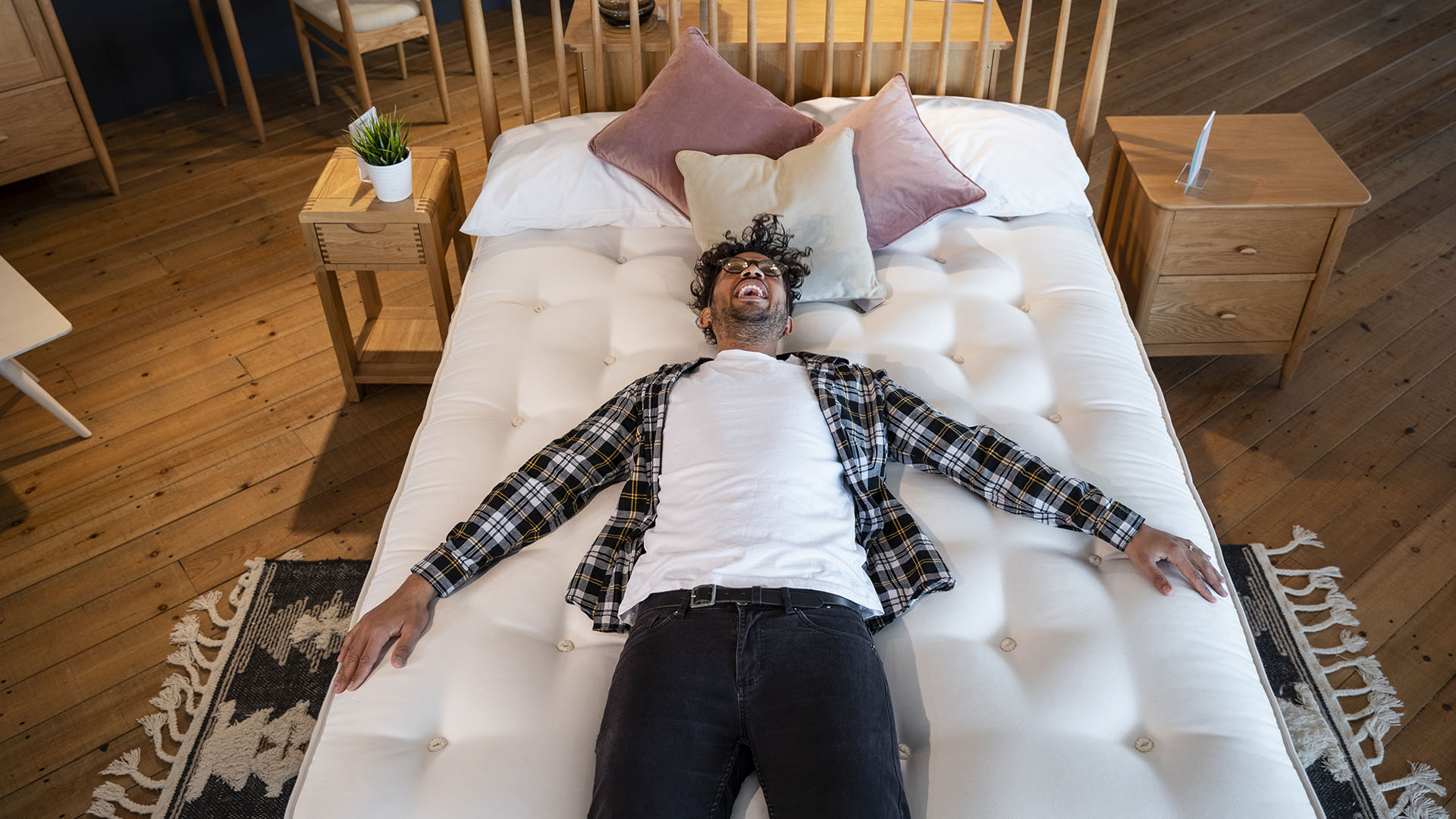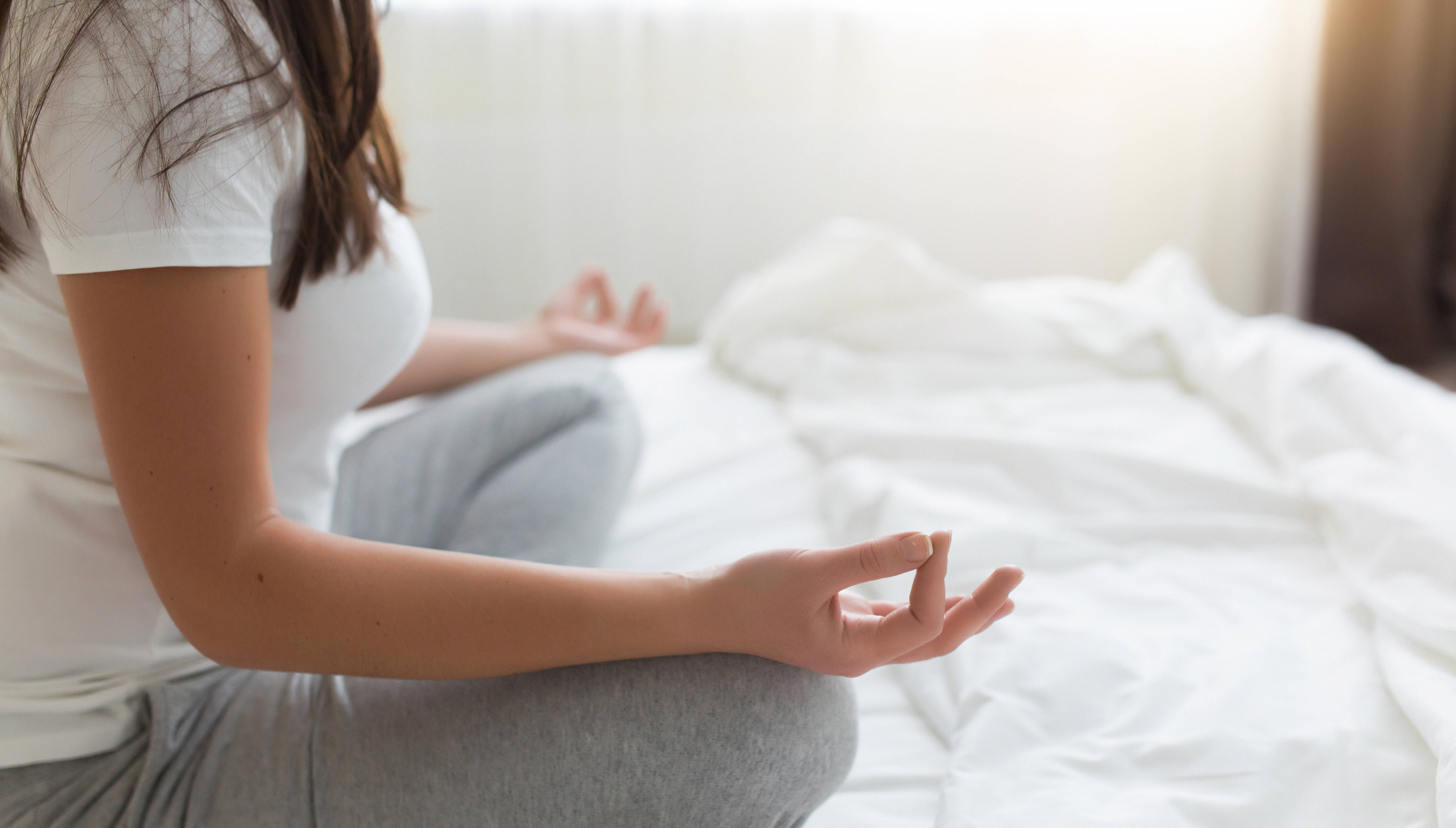
Back pain is horrible. I know, I've suffered from it. And it's particularly distressing when even lying down doesn't give you respite. That also means it takes longer to fall sleep, the quality of your sleep is reduced, and you might wake up in the morning feeling as though you haven't slept.
Thankfully, I've found that a few simple changes to my bedtime routine and sleep environment have significantly reduced the back pain I experience during the night, while also improving the overall quality of my sleep.
Here I'll dive into some common strategies for alleviating the discomfort of back pain during sleep that have worked for me, ranging from swapping your sleep position to investing in the best mattress for your body.
Meet our experts

James Crow is the founder of Posture Stars, which helps people to overcome the burden of posture problems by fusing together the best of modern bodywork, mindfulness and ergonomics. James has 5 years experience as an Alexander Technique teacher of good posture, and is a Certified Remote Ergonomics Specialist.

Lyndsay Hirst is a chartered, state-registered physiotherapist with over a decade of experience helping people overcome physical injuries and conditions such as back pain, neck, hip and shoulder pain. Lyndsay is widely know for her unique online pilates exercises programmes designed to alleviate body pain.
However, none of these alone will cure your back pain. For me, regularly doing pilates and similar exercises has been key, but everyone is different. So if you're suffering from back pain, consult a doctor or oesteopath first.
1. I sleep in the best position for back pain
For me and many others, the ideal sleeping position to minimize back pain is to sleep on your back. Here’s why:
Even weight distribution: When you sleep on your back, your body weight is evenly distributed across your mattress. This minimizes the development of pressure points that can otherwise worsen back pain.
Spinal alignment: Sleeping on your back typically involves less twisting or curving of the spine compared to other sleeping positions.
Sign up to get the BEST of Tom's Guide direct to your inbox.
Get instant access to breaking news, the hottest reviews, great deals and helpful tips.
"Back pain can vary for each individual, but it's generally considered best to sleep on your back, so aim for that if possible," says posture expert James Crow. "If you're a side sleeper or a front sleeper, consider learning to sleep on your back. It can take a couple of weeks to build the new habit, but it's worth it."
This is not a hard-and-fast rule, though, and so there's always going to be some trial and error involved. "It’s often difficult to ask someone to change their sleeping pattern as most people find difficulty getting to sleep in a way they're not used to," says physiotherapist Lyndsay Hirst.

2. I use a pillow for extra hip support
An alternative position that may help with back pain is side-lying with a pillow between the knees. "This helps keep the hips and pelvis in a neutral position while sleeping and minimizes strain on the spine," explains Hirst.
Changing your pillow can have a surprisingly powerful effect on back pain because using a good pillow that supports your neck's natural curve helps maintain proper spinal alignment from your head down to your lower back.
Many studies, including research by the Korean Society of Sleep Medicine, support the idea that body pillows (a long, narrow pillow used by side sleepers during the night for comfort and pain relief) can positively impact sleep posture.
3. I sleep on a mattress with good back support
If you're waking up with a sore back, this may be a sign that you need to replace your mattress. In general, an old, saggy mattress will make back pain worse, so a new one that suits your body and sleep position should minimize it.
For this reason, it's worth investing in a durable mattress made from high-quality materials for long-lasting support and comfort. Medics used to recommend very firm mattresses for back sufferers, but that advice has shifted over the years. Indeed, one survey of 268 people with low back pain found that those who slept on very firm mattresses had the poorest sleep quality.
Nowadays, many health experts recommend a medium-firm mattress as the best mattress for back pain sufferers, and Crow is among them. "Medium-firm mattresses are generally better for back pain than soft mattresses, which can lack support, or hard mattresses, which can be too unforgiving."

Here are few reasons why this type of mattress is good for back pain:
Balance of support and comfort: A medium-firm mattress offers a balance of support and comfort, maintaining proper spinal alignment while providing cushioning for comfort.
Pressure relief: Quality memory foam mattresses contour to your body shape, reducing pressure points, especially around areas like the hips and shoulders.
Motion isolation: If you share your bed, a medium-firm mattress is more likely to have good motion isolation to prevent disturbances when your partner moves during the night.
4. I follow a bedtime routine that relaxes my body
As well as physical factors, your mental state can make a big impact on the amount of back pain you experience in bed. "Ironically, stress, anxiety and tension can make for a worse night's sleep," explains Crow.
"And it doesn't help that back pain can contribute to all of those. So think about a 'settling-down' routine at night that involves comfort and relaxation. Step away from social media or TV screens."

"Have a good wind down technique, perhaps a warm bath and a hot water bottle before bed," recommends Hirst. "A few gentle stretches and some relaxation exercises can be extremely helpful. If appropriate, certain medications can also help when taken before bed."
"Personally, I like to lie in semi-supine for a few minutes before going to bed," says Crow. "It involves lying on your back, with your knees bent up in the air, feet flat on the floor, and a couple of supportive books under your head. It's a position popular with Alexander Technique teachers, a system proven to help reduce back pain."
Tom regularly writes about sleep for Tom's Guide and our sister site T3.com. Over the years he's tested a number of mattresses, duvets and pillows, and as a back pain sufferer, has a keen interest in finding ones that offer maximum support. Plus, in running a successful Airbnb business, sleep hygiene and providing the right bedding for guests has become a big part of his day-to-day life.

